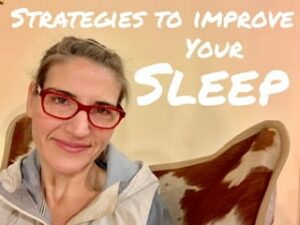Last week we explored a bit about how important sleep is to health and life. (5 word recap: it’s as important as water.) This week in part 2 of a 3 week series on sleep, I get into the details of many of the various strategies I’ve explored in an attempt to improve my own sleep. As I was preparing to write this post, I started jotting things down… and realized it could turn into a 100 page treatise. So in this post I’ll try to keep it as concise as possible, and then can go into a lot more detail for a few of these strategies in future posts for those of you who are interested in more of the scientific evidence behind them.
My med school friend Al Chun joked last week about expecting me to tout the benefits of cutting back on caffeine and alcohol, and indeed, he was correct:
- CAFFEINE. After you wake for the day, a chemical called adenosine starts to slowly build up in your brain, gradually slowing down your neuronal firing until you fall asleep and the adenosine is washed away. Caffeine decreases the soporific effects of adenosine by competing for its receptors in the brain, thereby speeding up neuronal firing and leading the pituitary to sense an emergency and trigger you adrenaline (thus the feeling of shakiness or cold hands from blood vessel constriction if you overcaffeinate). This can obviously disrupt your sleep. (Caffeine also disrupts the architecture of your sleep even if you are able to fall asleep after having that after dinner espresso.) Common wisdom suggests that you avoid caffeine after noon, but I would go farther than that and suggest that you should avoid caffeine for a full 12-14 hours before your intended bedtime. (!) Yes, that means that if you want to go to sleep at 10:00pm, you should avoid caffeine after 8:00am. The reason is that caffeine has a half life of 6 hours — meaning that a full 25% of the caffeine dose that you ingested this morning is still coursing through your veins 12 hours after you drank it. Cutting out caffeine entirely might be even smarter, but I don’t dare take away your morning joe, you coffee addict.
- ALCOHOL. While many people believe that a night cap helps ease them into sleep, alcohol actually has a very detrimental effect on sleep. While it can indeed induce the onsetof sleep, it disrupts your sleep architecture dramatically and ruins the quality of your sleep by depriving you of much-needed restorative REM sleep. In addition, as you metabolize the alcohol, you can go into a mild period of alcohol withdrawal which includes stimulation of your brain and circulatory system. If you want to drink responsibly with minimal effect on your sleep, have a single drink if you’re a woman (1.5 ounces of hard liquor, 5 ounces of wine, or 12 ounces of beer), or no more than two drinks if you’re a man, a full 2 hours or more before bedtime.
Beyond caffeine and alcohol, there are many other things that impact sleep quantity and quality:
- LIGHT: First of all, a bedroom that isn’t dark enough can seriously ruin your ZZZs. Blackout shades and/or a sleep mask can make a world of difference. Also, avoid bright and/or blue light for several hours before bed. Exposure to light in the blue spectrum after sundown is getting more and more common (with compact fluorescent and LED bulbs becoming ubiquitous and our iPhone and Android screens being ever-present in our lives) — this suppresses the production of sleep-inducing melatonin. This keeps you awake and shifts your circadian clock to create a false jet lag in your brain. Use the function on your phones and tablets that turns the light color to an orange hue (with Apple products it’s under Settings -> Display and Brightness -> Night Shift), avoid TV in the hour before bed, and turn down the lights in your home. If you want to get really geeky about it, you can even buy these sexy blue-blocking glasses.
Interestingly, I personally found that I was usually exhausted by 7 or 8pm and could fall asleep easily once I let myself get into bed, but often woke around 3:00am with a surge of warmth and adrenaline, as if my cortisol (which usually peaks around 6:00am) were peaking early. So for me, blue light in the evening wasn’t impairing my ability to fall asleep, but rather I seemed to have the opposite problem. So I started wearing these blue blockers in the early morning hours if I got up before 5:00am to help prevent my brain from thinking it was already daylight out. Similarly, I bought a cheap bright light therapy box to shine into my eyes around 7pm when I was fading early, to try to adjust my own circadian rhythm to a slightly later schedule.
Strategically using and/or blocking blue light to your advantage might be a useful part of a comprehensive sleep overhaul.
- NOISE: Ensure your bedroom is extremely quiet. If you’re unable to create a quiet environment, I highly recommend playing white noise to block out random sounds — there are many free white noise apps available. I own several and like to play a rain/shower sound — without it, even the sound of the aircraft onditioning unit outside our window turning on and off wakes me up! Sleep with a partner who snores but who themselves can’t stand to hear white noise? Buy a set of sleep headphones that are more comfortable for side sleepers than ear buds – if you put them over your eyes instead of your forehead, they can even double as a light-blocking mask.
- TEMPERATURE: Make sure your sleeping environment is cool. For optimal sleep, it turns out that the room temperature should ideally be about 65 degrees Fahrenheit. Sleep relies on the cooling of your core body temperature, so a warm room can hinder this. I invested in a pricy product called the chiliPAD™ (I bought a refurb and waited for 25% off!) which goes underneath your sheets and pumps water throughout the night to regulate the temperature of your bed anywhere from 55 to 115°F — I have mine set for 64 degrees. (Side bonus for my 40/50-something lady friends out there – the chiliPAD™ can eliminate the middle-of-the-night hot flashes that so commonly disturb the sleep of perimenopausal women!) Taking a hot bath or sauna before bed can help by warming your body up enough to dilate your surface blood vessels, which can then help dissipate heat from your core more quickly as you slide into bed in your cool room. Wearing a pair of warm socks (or placing an old school hot water bottle at your feet) has the similar effect of warming your extremities and allowing your surface blood vessels to dilate more, thereby helping you sleep more soundly.
- MENTAL CHATTER: We’ve all probably lay down to go to sleep, or awoken in the middle of the night, only to start ruminating about the big presentation we have to give the next day, or what you wish you had said during that argument, or simply your long To Do list looming over your head. There are several strategies that might help. One is keeping a notebook next to your bed and brain dumping all of your worries out onto paper before you go to sleep. (Jotting down the thing that pops into your head at 3:00am can also help you release it and go back to sleep.) Similarly, avoid mentally engaging with anything that might be stressful in the hour or so before bed, such as watching the evening news or reading potentially annoying work emails. Starting a meditation practice can also do wonders. There are several popular apps out there. I personally like Headspace (which has a great “mindful eating” course in addition to several courses on sleep, by the way); I’ve heard many people tout the benefits of Calm, and if you think meditation is froofroo, Ten Percent Happier is another popular meditation app which is geared toward people who might approach mindfulness and meditation with a bit more reluctance. I found that with practice (just 10 minutes of guided meditation each afternoon), I was able to more easily tap into that relaxed head space in the middle of the night and clear my mind, meditating myself back to sleep successfully as often as not. I also suggest trying the “military method” of falling asleep, which focuses on muscle relation — since incorporating it (especially focusing on relaxing all of the muscles in my face), I’ve had a much easier time drifting back off to sleep than I used to.
- NAPS: No matter how tired you are, if you’re not sleeping well at night, try to avoid napping. Remember adenosine, which we discussed above under caffeine? Well, a long enough nap will discharge the adenosine that’s been building up in your body and thereby worsen your nighttime sleep. If you do need to nap, keep it to 20 minutes or less to refresh your mind without discharging all that sleep-inducing adenosine.
- FASTING: Don’t eat or drink within the three hours before bedtime. Having your digestive system actively processing that big dinner or late-night snack when instead it should be resting has been shown to impact sleep negatively.
- SUPPLEMENTS: I could write an entire blog post solely on potential supplements to use for sleep, so I won’t get into all of the evidence (weak or strong) behind these here. But a few supplements that I personally have incorporated are low-dose melatonin (it has a very short half life so will help you fall asleep, but won’t really help you stay asleep – I sometimes take a physiologic 300mcg dose when I awake at 2 or 3am), ashwagandha 300mg twice a day, GABA 100mg at bedtime (it doesn’t cross the blood-brain barrier to make you sleepy, but may relax the peripheral nervous system), and L-theonine 100-200mg at bedtime (btw to simplify things, Jarrow Formulas makes a single supplement called “GABA Soothe” that contains GABA 100 mg, theanine 100 mg, and ashwagandha 225 mg). I also take my daily magnesium supplement (Magtein) for cognitive preservation/function in the evening since some people claim that magnesium relaxes them and makes them sleepy (though I myself have never felt sleepy when taking it). Two kiwi fruit an hour before bed, as well as sour cherry juice, have been studied and are potentially promising as well. The gut Microbiota can affect the architecture of our sleep, and certain prebiotic fibers have been shown to improve sleep in rodent studies – specifically, these fibers are contained in the supplement Bimuno Daily, which was touted as an effective supplement in a BBC documentary entitled “The Truth About: Sleep.” I put a sachet of Bimuno in my coffee every morning just for kicks.
I recommend AGAINST using sedative-hypnotics such as Ambien (zolpidem), as they adversely affect sleep architecture and have been associated with a higher risk of mortality even in people who use them only occasionally. Similarly, the use of antihistamines (such as Benadryl or diphenhydramine, Unisom or doxylamine, and meds containing these antihistamines such as Tylenol PM or Advil PM) has been associated with a significantly increased dose-dependent risk of dementia (attributed to the anticholinergic effects).
- DIVORCE: Did I get your attention? Ha. But seriously, I feel strongly that a “sleep divorce” might do wonders for your and your partner’s sleep. A hot topic recently covered by the New York Times and the Today show, the “sleep divorce” simply entails partners sleeping in separate rooms. This can make a huge difference if either or both of you are disturbed by the other, whether from snoring, different bedtime and rising times, movement in the bed, the sleep disorder of one or both partners such as restless legs syndrome or obstructive sleep apnea, or different temperature preferences. It turns out that up to 40% of people, when surveyed anonymously, admit to sleeping separately from their partner, and the sex lives of these people may actually be better than those with disturbed sleep… because who wants to get busy when you’re exhausted?? Indeed, a sleep divorce might help prevent a real divorce!
I know this was a long one, guys, but hope at least some of it was new and helpful to you! Let me know in the comments below whether you’ve had success with any of these methods, or plan to try one or more of them. And if any of my posts have been interesting or helpful to you, please do share with others you think might be interested — sharing really helps me spread the wisdom more effectively!
Next week in Part 3, I will cover one more critical topic in the realm of sleep, and reveal my own shocking (and life changing) sleep-related diagnosis! Until then, sweet dreams!
Love, Jen


